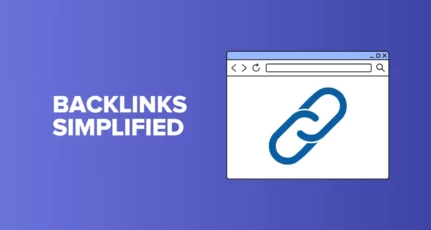
- Have you ever thought about outbound link SEO?
- Should You add a link to external sites?
- Will, it improve your SEO?
Have you considered why it’s important to have quality outbound links from your website or wondered how to produce them?
Note: External links and outbound links are the same. I may be interchangeably using both the words, in this article.
Because we’re working in a post-panda world, I’m offering up this post to help you understand the importance of outbound links for SEO.
We have already talked about how to create backlinks to your website which will eventually help in increasing the search engine ranking, but at the same time, you should consider employing an outbound link strategy to make sure your blog is never devalued.
What are outbound links?
Outbound links are links that point to some other domain from your site.
When you link out to related domains, it not only helps the search engine to understand your niche, but also helps to increase the trust and quality of your site which plays a vital role in your blog’s SEO.
Outbound links:
- Give search engines a clear idea about your blog because of relevant links.
- Offer the best way to be in touch/build relation with bloggers having the same niche.

Benefits of outbound links from the SEO perspective:
Before I describe the general benefits of outbound links, I’d like to introduce you to the Google related link operator. (This one is depreciated).
Like any other operator in a Google search, you can use Google’s related link operator to see what links are relevant to your site according to Google! A good related site link for your site will list all of the important and popular sites in your niche.
FYI, even a comment link is counted as related links, and if someone is commenting on every post published on your blog, he may even see the benefit of being featured as a related site.
You can search for “related:(your domain name).com” in Google to see related site links.

If you check related links for your site and find some spammy links as relevant links, that means you need to start building links from relevant sites to give a good signal to search engine.
Read our guide on: Blog Comments: When are they Useful and When are they Harmful?
Now that you have a basic idea of why your outbound links are so important, let’s look at the things you should consider when linking out.
Link to relevant Webpages!
A lot of users avoid adding links to their content thinking it would take away their visitors, which is not the right approach. When you start linking to relevant websites in your niche, you basically tell search engines more about your content and it creates a connection from your website to others.
Try to link up with blogs having the same niche as your blog. This will help you to attract targeted visitors to your blog. Try to link to domains that are already trusted and have good domain authority.
Avoid link farms
Avoid two-way backlinks, and when you are linking to any domain make sure it is not a part of a private blog network. Following recent Google penguin updates, Google has been taking down all such private blog networks and devaluing their links.
Avoid having too many outbound links
Having some links pointing out is fine, but having too many outbound links can be annoying from the perspective of your readers.
Try to concentrate more on internal linking, (part of Wikipedia’s SEO Strategy), and link out to only to some websites that are relevant to your page.
Link to fewer blogs and only to relevant blogs. There are some pages that link out to, for instance, “The Top 101 Websites” or “20 Forums to Follow” and other similar pages that rank well despite using multiple outbound links. But in general posts, we want to take care not to link out too much for better reader experience.
Most importantly, make sure your content is useful, and take care of on-page optimization.
Provide and ask for links
In blogging, it is beneficial to everyone to use the give-and-take system. If you have a blog post in which you refer to another author’s blog post, you should provide the link in your post.
You can take it to the next level, by letting the blog/website owner that you have linked to them.
To whom should you link?
There are many strategies that you can follow for linking out.
My suggestion is that when you want to give a reference or explanation in your post but you are not entirely sure where to link out (what information to point to as your reference) link to good resources such as Wiki. (Yes! Wikipedia is still one of the most trusted domains from Google POV!)
Here are a few suggestions for creating outbound links:
- Link to pages that actually add value and cover the topic very well.
- Link to articles having good page authority or domain authority.
- Link to articles that have got a high number of social media share. (Though do consider other factors like the authenticity of the site)
- Link to the bloggers in your network or in your niche, helping you to create a community with fellow bloggers.
One strategy we have long employed here at ShoutMeLoud is that when we use words that are useful but their meaning may not be familiar to our readers, we link to a good and reliable source, or if we have a post on that topic, we interlink to that.
Keeping bounce rate in mind, always try to make outbound links open in new tab.
Also in this post-panda world, I have noticed that most of the top-ranking pages in Google have at least a few outbound links to relevant and high-ranking pages, which helps them to boost their ranking.
What’s your strategy for outbound links, and when do you use nofollow for them?
Also, do you care about anchor text when linking out to any other page?
Outbound Links FAQs
Always focus on linking your content to relevant, trustworthy, and authoritative websites within your niche, allowing your readers to understand more about the topic. A good example is linking to Wikipedia which is considered a credible source for the majority of topics.
There is no set number, but you should maintain a balance and avoid excessive external linking, which can distract readers. Focus on seamlessly integrating meaningful, informative external links that improve the reader’s experience and provide value to them.
If you find the information in this post useful, be sure to share it with your fellow bloggers and friends via LinkedIn and Twitter.
Here are a few hand-picked guides for you to read next:
- Best Keyword Research Tools For SEO: 2020 Edition
- On-Page SEO Techniques To Rank On The First Page
- How To Write SEO-Friendly Content (Beginner To Advanced)




Thanks for sharing information about the importance of outbound links. I was not creating any outbound links on blogs because I was thinking we should not give any outbound links to any website, Google might bring your ranking down. But from now onwards, I will make outbound links on blogs.